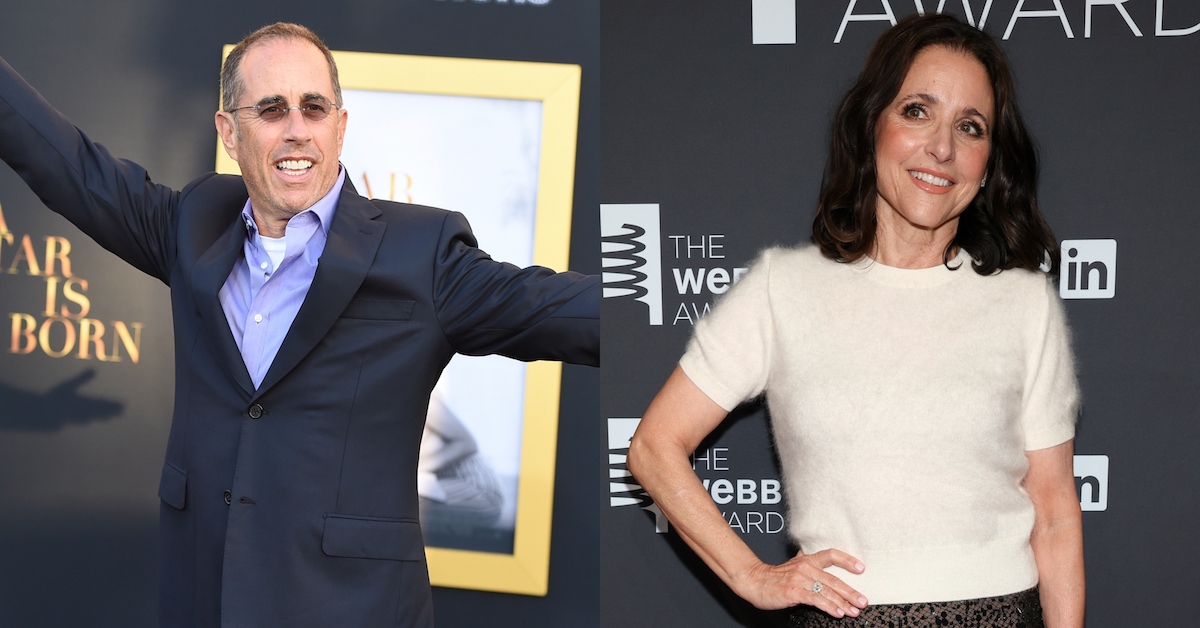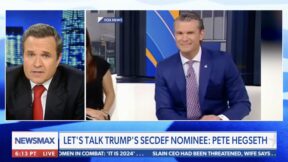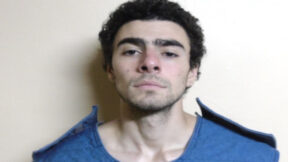Julia Louis-Dreyfus Says Complaints About ‘Political Correctness’ a ‘Red Flag’ After Jerry Seinfeld Torches ‘PC Crap’ Hampering Comedy

Photo by Jordan Strauss/Invision/AP (L)/Photo by CJ Rivera/Invision/AP (R)
Julia Louis-Dreyfus broke with her Seinfeld co-star Jerry Seinfeld on political correctness and its effects on comedy, saying complaints about it are a “red flag” that could “mean something else.”
In an interview with New York Times writer Lulu Garcia-Navarro published over the weekend, Dreyfus was directly asked about Seinfeld’s recent comments in which the comedian said the “extreme left and PC crap” are hampering comedy.
Dreyfus made a pitch in favor of political correctness.
“If you look back on comedy and drama both, let’s say 30 years ago, through the lens of today, you might find bits and pieces that don’t age well,” she said. “And I think to have an antenna about sensitivities is not a bad thing. It doesn’t mean that all comedy goes out the window as a result.”
The Veep actress said pushing back on political correctness could be a “red flag.”
“When I hear people starting to complain about political correctness — and I understand why people might push back on it — but to me that’s a red flag, because it sometimes means something else,” she said. “I believe being aware of certain sensitivities is not a bad thing. I don’t know how else to say it.”
In an April interview on The New Yorker Radio Hour, Seinfeld argued there is less comedy on television today because of “PC crap.”
“This is the result of the extreme left and PC crap, and people worrying so much about offending other people. When you write a script, and it goes into four or five different hands, committees groups — “Here’s our thought about this joke” — Well, that’s the end of your comedy,” he said. “They move the gates, like in skiing. Culture — the gates are moving. Your job is to be agile and clever enough that wherever they put the gates, I’m gonna make the gate.”
In a followup chat with Garcia-Navarro, Dreyfus shared more of her thoughts on political correctness, arguing it’s good to be “vigilant.”
“My feeling about all of it is that political correctness, insofar as it equates to tolerance, is obviously fantastic. And of course I reserve the right to boo anyone who says anything that offends me, while also respecting their right to free speech, right?” she said. “But the bigger problem — and I think the true threat to art and the creation of art — is the consolidation of money and power. All this siloing of studios and outlets and streamers and distributors — I don’t think it’s good for the creative voice.”
Read the entire New York Times interview here.




